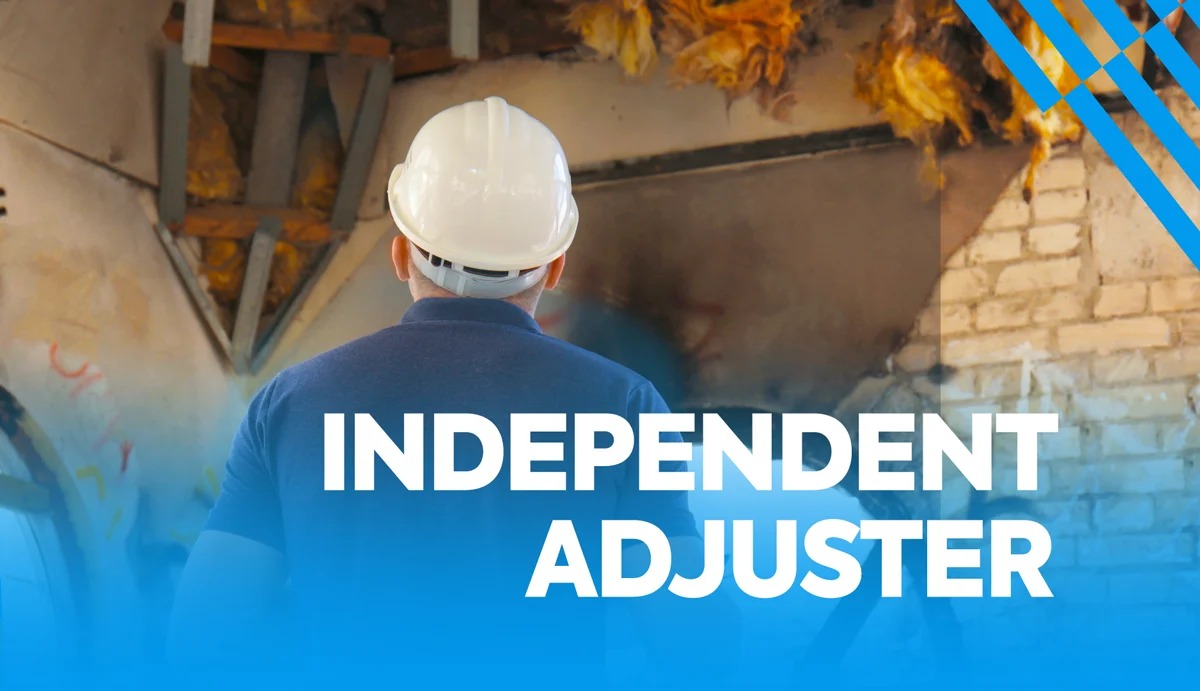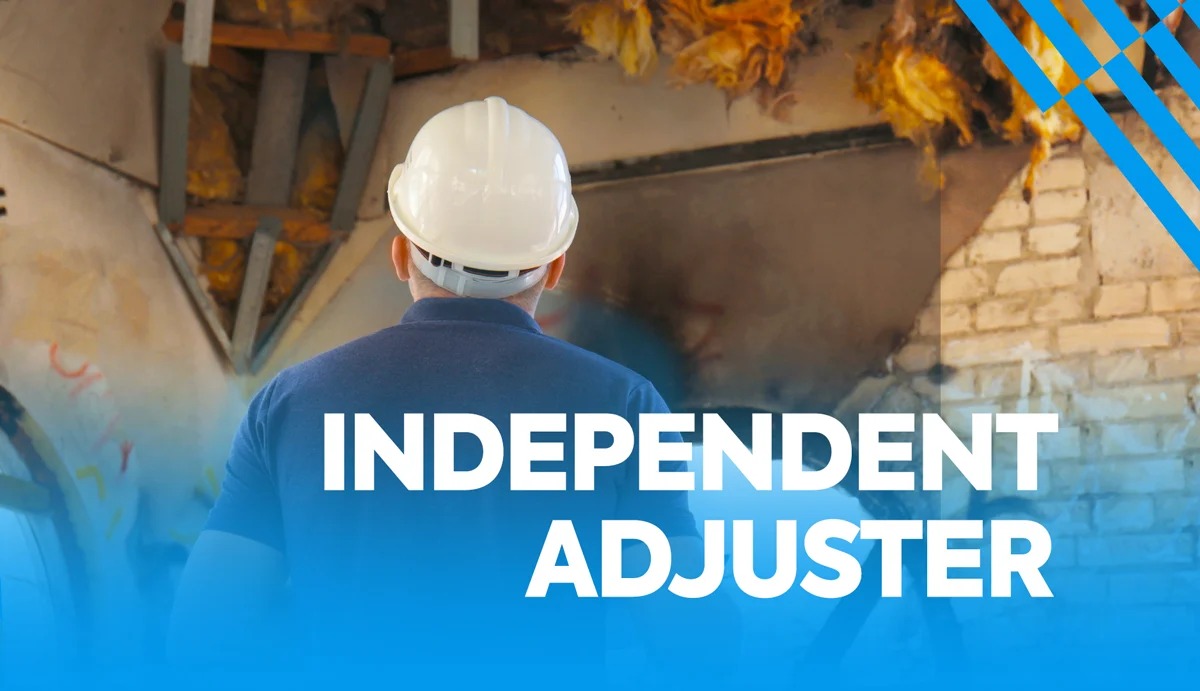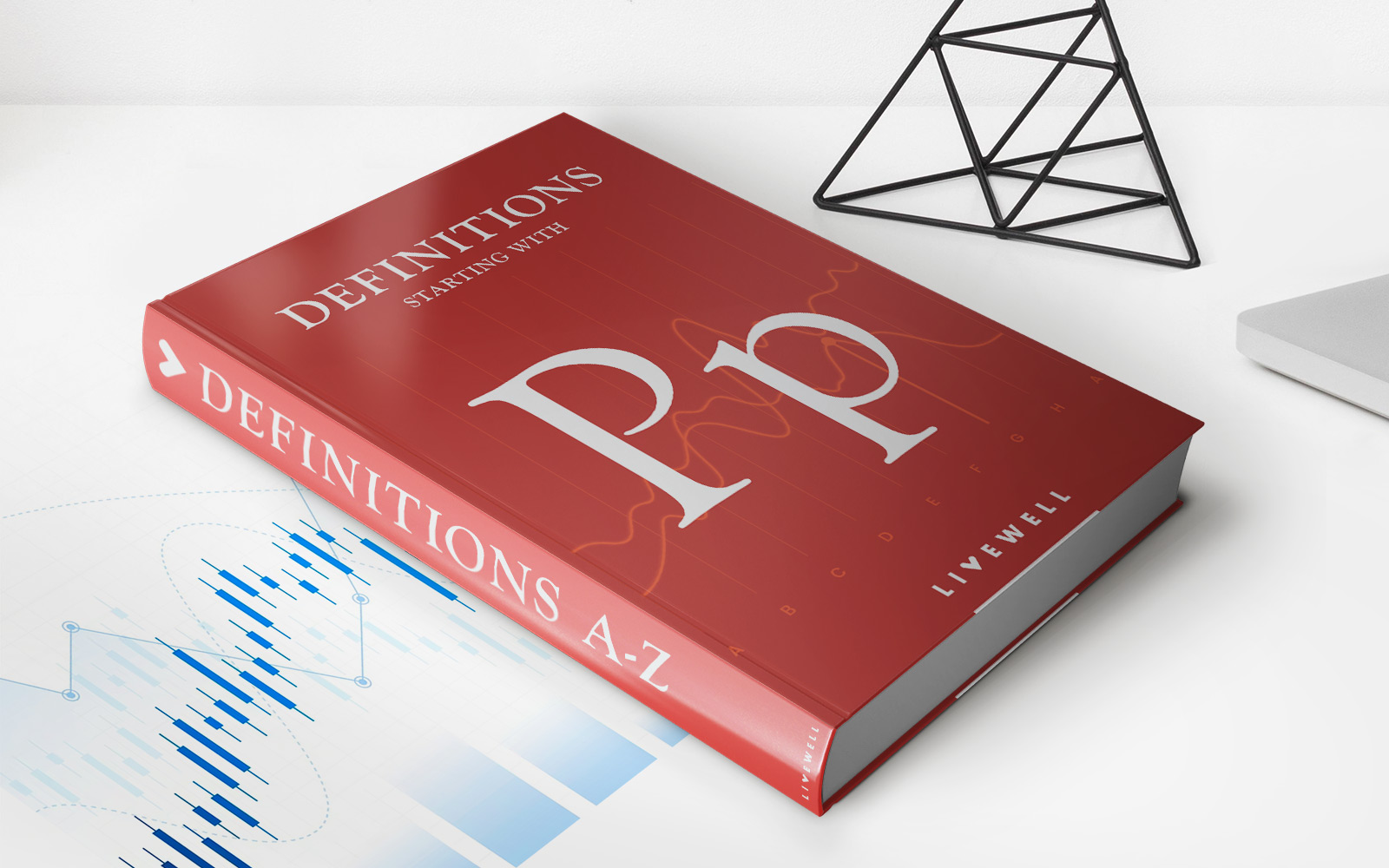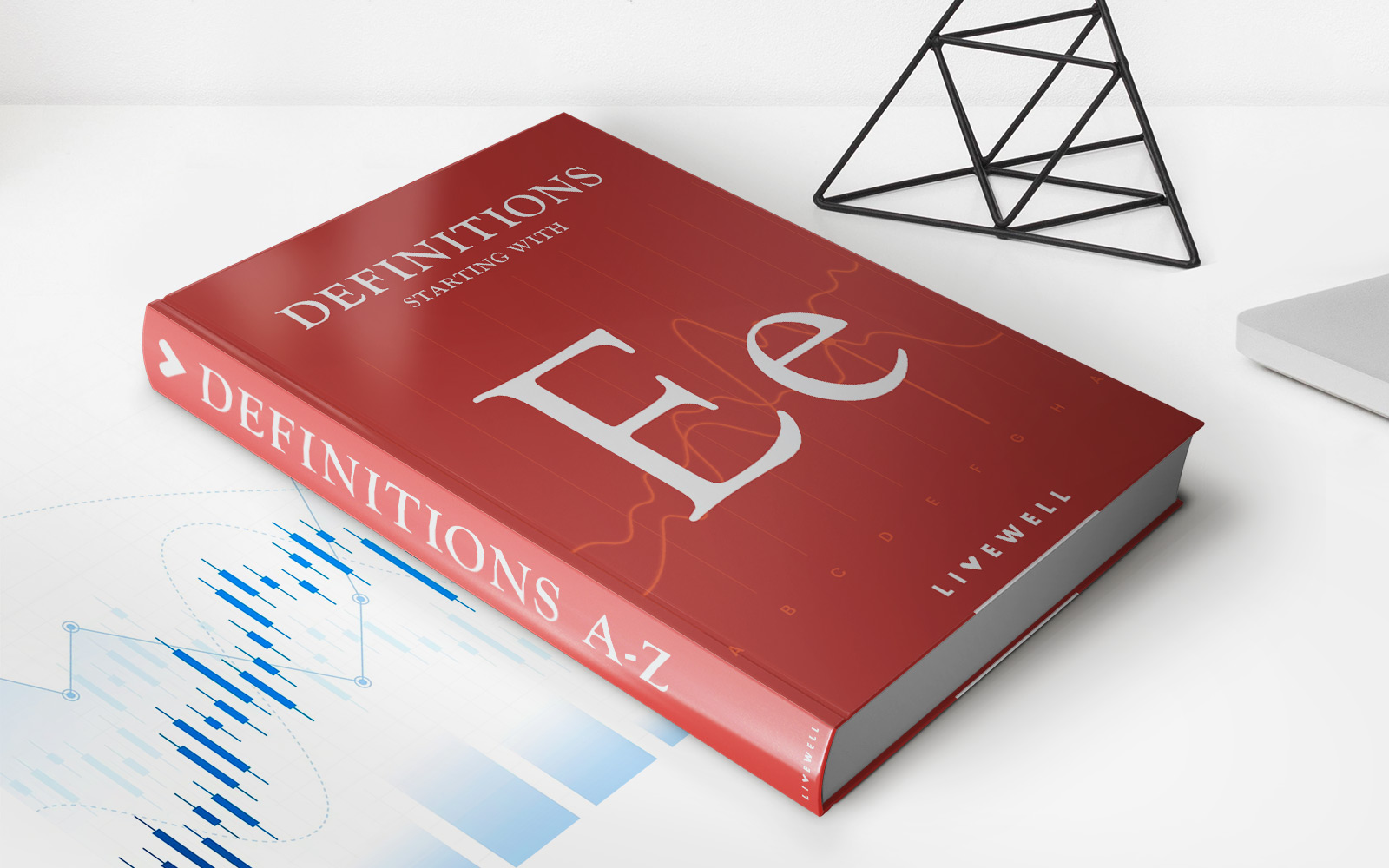Home>Finance>How To Get Work As An Independent Insurance Adjuster


Finance
How To Get Work As An Independent Insurance Adjuster
Modified: December 30, 2023
Looking for work as an independent insurance adjuster in the finance industry? Learn how to get started and increase your chances of landing insurance adjustment jobs.
(Many of the links in this article redirect to a specific reviewed product. Your purchase of these products through affiliate links helps to generate commission for LiveWell, at no extra cost. Learn more)
Table of Contents
- Introduction
- Step 1: Obtain the necessary education and training
- Step 2: Get licensed as an insurance adjuster
- Step 3: Gain relevant experience in the insurance industry
- Step 4: Network with professionals in the field
- Step 5: Develop a strong resume and cover letter
- Step 6: Apply for independent adjuster positions
- Step 7: Prepare for interviews and assessments
- Step 8: Negotiate contracts and fees
- Step 9: Continuously update your skills and knowledge
- Conclusion
Introduction
Are you looking for a rewarding career that allows you to work independently and make a difference in people’s lives? Consider becoming an independent insurance adjuster. As an adjuster, you will play a crucial role in the insurance industry by assessing damages, determining coverage, and helping policyholders get back on their feet after a loss.
Being an independent insurance adjuster offers numerous benefits. You can enjoy the flexibility of setting your own schedule and working on a wide variety of claims, from property damage to auto accidents. Additionally, the demand for skilled adjusters is high, providing ample opportunities for job growth and financial stability.
However, breaking into the field of independent insurance adjusting requires more than just a desire to help people. To succeed in this competitive industry, you need the right education, licenses, experience, and networking skills. This comprehensive guide will walk you through the step-by-step process of becoming an independent insurance adjuster, ensuring that you have all the tools and knowledge necessary to thrive in this dynamic profession.
Remember, while the following steps provide a general roadmap, it’s important to research and understand the specific requirements and regulations in your state or country. Let’s get started on your journey to becoming an independent insurance adjuster!
Step 1: Obtain the necessary education and training
To start your journey as an independent insurance adjuster, it’s crucial to obtain the necessary education and training. While a college degree is not always required, having a background in finance or a related field can provide a solid foundation for your career. Consider pursuing a degree in insurance, risk management, or business administration to gain a comprehensive understanding of the insurance industry.
Additionally, there are numerous online courses and training programs specifically designed for aspiring insurance adjusters. These courses cover essential topics such as claims investigation, insurance policies, estimating property damage, and negotiation skills. They can help you develop the knowledge and skills needed to excel in the field.
It’s important to choose reputable and accredited institutions or training providers for your education. Look for programs that are recognized by industry associations, such as the National Association of Independent Insurance Adjusters (NAIIA) or the National Association of Public Insurance Adjusters (NAPIA). These organizations ensure that the training you receive meets industry standards.
Some states or countries may have specific educational requirements for independent insurance adjusters. Research the regulations in your area to ensure compliance and to determine if any additional coursework is necessary for licensure.
Besides formal education, it’s also beneficial to stay updated with industry trends and advancements. Subscribe to industry publications, attend seminars, and participate in webinars to enhance your knowledge and stay current with insurance industry practices. This continuous learning will help you stay competitive and provide the best possible service to your clients.
In summary, obtaining the necessary education and training is the first step toward a successful career as an independent insurance adjuster. Whether through formal education or specialized training programs, equip yourself with the knowledge and skills needed to excel in the industry.
Step 2: Get licensed as an insurance adjuster
Once you have obtained the necessary education and training, the next step in becoming an independent insurance adjuster is to get licensed. Licensing requirements vary by state or country, so it’s crucial to research the specific regulations in your area.
In most jurisdictions, obtaining an insurance adjuster license involves passing a licensing exam. This exam typically covers key topics such as insurance principles, policy provisions, claims handling procedures, and state-specific regulations. Study materials and exam prep courses are available to help you prepare for the licensing exam.
Some states may have additional requirements, such as completing pre-licensing courses or obtaining a specific number of hours of work experience under the supervision of a licensed adjuster. Be sure to check the specific requirements in your area and fulfill them accordingly.
Once you have met the educational and licensing requirements, you can submit an application for your insurance adjuster license. This will typically involve providing proof of your education, passing the licensing exam, and paying the necessary fees. Keep in mind that the licensing process may take some time, so it’s important to start early and plan accordingly.
Renewing your insurance adjuster license is usually required on a regular basis, such as every one or two years. Along with the renewal, you may also be required to complete continuing education credits to stay updated on industry regulations and best practices.
It’s worth noting that some states have reciprocal licensing agreements, which means that if you hold a license in one state, you may be able to obtain a license in another state without having to take the licensing exam again. This can open up opportunities to work in different regions and take on a wider range of claims.
Remember, being properly licensed not only ensures that you are qualified to handle insurance claims, but it also builds trust and credibility with clients and insurance companies. It is a crucial step in establishing yourself as a professional independent insurance adjuster.
Step 3: Gain relevant experience in the insurance industry
Obtaining relevant experience in the insurance industry is a critical step toward becoming a successful independent insurance adjuster. While education and licensing are important, practical experience can significantly enhance your skills, knowledge, and credibility in the field.
One way to gain experience is by working for an insurance company as a staff adjuster. This role involves handling insurance claims on behalf of the company and working closely with policyholders, vendors, and other stakeholders. Staff adjusters are responsible for investigating claims, assessing damages, determining coverage, and negotiating settlements.
Working as a staff adjuster allows you to gain hands-on experience in handling various types of claims, such as property damage, liability, and bodily injury. It also provides insight into the inner workings of insurance companies, their policies, and their claims processes.
If becoming a staff adjuster is not a viable option, consider seeking internships or entry-level positions in insurance companies or with public adjusters. This can provide valuable exposure to the industry and help you learn the ropes under the guidance of experienced professionals.
Another way to gain experience is through mentorship or apprenticeship programs. Connect with seasoned independent insurance adjusters who are willing to mentor and guide you in building your skills and knowledge. They can share their experiences, provide advice, and help you navigate the challenges of the profession.
Volunteering with local disaster relief organizations or non-profit groups can also be an excellent way to gain hands-on experience in assessing damages and assisting policyholders in times of crisis. It not only provides valuable practical experience but also demonstrates your commitment to helping others.
While gaining experience, it’s essential to continually enhance your skills and knowledge. Stay updated with the latest industry practices, attend relevant training sessions and webinars, and consider pursuing certifications, such as the Certified Insurance Adjuster (CIA) designation.
By gaining relevant experience in the insurance industry, you will strengthen your expertise, build a network of contacts, and increase your chances of success as an independent insurance adjuster.
Step 4: Network with professionals in the field
Networking is a crucial step in establishing yourself as an independent insurance adjuster. Building relationships with professionals in the insurance industry can open doors to new opportunities, provide valuable insights, and help you stay connected to the latest trends and developments.
Start by attending industry conferences, seminars, and trade shows. These events bring together professionals from across the insurance industry, including insurance adjusters, insurers, and service providers. Take advantage of these gatherings to introduce yourself, exchange contact information, and engage in conversations with experienced professionals. Networking events often provide opportunities for learning, sharing knowledge, and building connections that can lead to job opportunities or collaborations.
Joining professional associations and organizations can also greatly enhance your network. Consider becoming a member of groups such as the National Association of Independent Insurance Adjusters (NAIIA) or the National Association of Public Insurance Adjusters (NAPIA). These associations provide numerous benefits, including networking opportunities, educational resources, and access to industry publications.
Utilize online platforms and social media to connect with professionals in the insurance industry. LinkedIn is a powerful tool for building your professional network. Create a strong profile, join relevant industry groups, and engage in discussions and forums. Connecting with experienced adjusters, industry leaders, and recruiters can help you expand your network and create valuable connections.
Don’t forget to reach out to former colleagues, classmates, and mentors. They may have connections or be able to refer you to job opportunities. Regularly keep in touch with your network, whether through emails, phone calls, or face-to-face meetings. Building and maintaining strong relationships is key to accessing new opportunities in the field.
When networking, don’t only focus on what others can do for you, but also consider how you can provide value to them. Offer your assistance, share industry insights, or recommend resources. Building a reputation as a helpful and knowledgeable professional will make others more inclined to recommend you or collaborate with you.
Networking is an ongoing process, so continue to nurture your connections and expand your network even after you have established yourself as an independent insurance adjuster. The relationships you build can lead to referrals, partnerships, and ongoing professional growth throughout your career.
Step 5: Develop a strong resume and cover letter
When applying for independent adjuster positions, a well-crafted resume and cover letter can greatly enhance your chances of securing a job. These documents act as your marketing tools, showcasing your skills, experience, and qualifications to potential employers.
Start by creating a professional resume that highlights your relevant experience, education, and any certifications or licenses you have obtained. Tailor your resume to emphasize your skills in claims handling, policy interpretation, negotiation, and customer service. Include any notable achievements or projects that demonstrate your expertise and effectiveness as an insurance adjuster.
Be concise and organized in presenting your information. Use bullet points and clear headings to make your resume easy to scan. Include keywords and phrases relevant to the insurance industry to increase the chances of your resume getting noticed by applicant tracking systems (ATS) and hiring managers.
When crafting your cover letter, personalize it for each position you apply to. Address it to the hiring manager or specific contact person if possible. In your cover letter, express your genuine interest in the company and the role you are applying for. Highlight your knowledge of the company and its values, and explain why you believe you would be a good fit.
Use the cover letter to demonstrate how your skills and experiences align with the specific requirements of the position. Emphasize your ability to effectively handle claims, accurately assess damages, and provide exceptional customer service. Showcase your attention to detail, problem-solving skills, and ability to work independently.
Remember to proofread both your resume and cover letter carefully. Spelling and grammatical errors can create a negative impression. Consider having a trusted friend or family member review your documents to ensure clarity and effectiveness.
In addition to your resume and cover letter, consider creating an online professional profile. This can be in the form of a LinkedIn profile or a personal website that highlights your skills and experiences. Include a link to this profile in your resume and cover letter.
Keep your resume, cover letter, and online profile up to date as you gain more experience and skills. Continuously refine and tailor your documents for different opportunities to maximize their impact.
A strong resume and cover letter can make a significant difference in getting noticed by employers and securing interviews for independent adjuster positions. Take the time to develop polished and customized documents that showcase your abilities and highlight your unique strengths.
Step 6: Apply for independent adjuster positions
Once you have prepared your resume and cover letter, it’s time to start applying for independent adjuster positions. Here are some strategies to help you navigate the application process:
Research job opportunities: Begin by exploring job boards, company websites, and industry-specific platforms to identify openings for independent adjuster positions. Look for opportunities with insurance companies, independent adjusting firms, or public adjusting firms. Additionally, consider reaching out to staffing agencies or recruitment firms that specialize in the insurance industry.
Customize your application: Tailor your resume and cover letter for each specific position you apply for. Highlight the relevant skills, experiences, and qualifications that match the requirements outlined in the job posting. This customization demonstrates your genuine interest in the role and makes your application stand out from the competition.
Follow application instructions: Pay close attention to the application instructions provided by the potential employer. Adhere to their guidelines regarding submission methods, required documents, and any additional requirements they may have. Failure to follow instructions can result in your application being disregarded.
Showcase transferable skills: If you’re transitioning from a different industry or have limited direct experience as an insurance adjuster, emphasize your transferable skills in your application. Highlight your ability to investigate, analyze data, negotiate, and provide exceptional customer service. Demonstrating how your skills can be applied in the role of an independent adjuster will increase your chances of being considered.
Provide references: Include professional references in your application, preferably individuals who can speak to your abilities as an adjuster or attest to your character and work ethic. Be sure to inform your references in advance so that they are prepared to speak positively about your qualifications.
Follow up on applications: After submitting your application, take the initiative to follow up with the hiring manager or the designated contact person if possible. A brief and polite email or phone call expressing your continued interest in the position can demonstrate your enthusiasm and dedication.
Keep track of applications: Maintain an organized system to track the positions you have applied for, including the company name, job title, date of application, and any important notes. This will help you stay organized and follow up appropriately.
Be patient and persistent: Landing a job as an independent adjuster may take some time and effort. Be prepared for a potentially lengthy application process, including multiple rounds of interviews and assessments. Stay persistent, maintain a positive mindset, and continue to refine your skills and knowledge in the meantime.
Remember, the application process can be highly competitive. It’s important to submit high-quality applications, showcase your relevant skills, and demonstrate your passion for the insurance adjusting profession. With dedication and perseverance, you can increase your chances of securing an independent adjuster position.
Step 7: Prepare for interviews and assessments
As you progress in the application process for independent adjuster positions, you may be invited for interviews and assessments. This step is crucial in showcasing your abilities, demonstrating your fit for the role, and differentiating yourself from other candidates. Here are some tips to help you prepare:
Research the company: Prior to the interview, thoroughly research the company you are applying to. Familiarize yourself with their services, clients, and mission. Understanding their values and culture will enable you to align your answers with their expectations and demonstrate your genuine interest in the organization.
Review the job description: Carefully revisit the job description to identify the key skills, qualifications, and experiences the employer is seeking. Prepare examples and anecdotes that highlight your relevant expertise and accomplishments in these areas. Be ready to articulate how your skills and past experiences make you a strong candidate for the position.
Practice common interview questions: Familiarize yourself with common interview questions and practice your responses. Focus on showcasing your problem-solving abilities, critical thinking skills, attention to detail, and ability to work independently. Consider using the STAR method (Situation, Task, Action, Result) to structure your responses and provide concrete examples.
Showcase your industry knowledge: Demonstrate your understanding of the insurance industry and the role of an independent adjuster. Stay updated with current trends, regulations, and best practices. Incorporate this knowledge into your answers to showcase your expertise and your ability to handle various claims scenarios effectively.
Prepare questions: Prepare questions to ask the interviewer. This shows your interest in the role and the company. Inquire about team dynamics, training opportunities, typical workload, and any additional responsibilities that may come with the position. Asking thoughtful questions helps you gather valuable information and demonstrates your enthusiasm and engagement in the interview process.
Dress professionally: Present yourself professionally during interviews and assessments. Dress appropriately for the occasion, ensuring your attire is polished and aligned with the company’s culture. Remember, first impressions matter, so make sure to project a confident and professional image.
Be prepared for assessments: Depending on the position and the company, you may be required to undergo assessments, such as case studies, technical tests, or role-playing exercises. Familiarize yourself with the common types of assessments in the insurance industry and practice relevant skills in advance. This will help you perform your best and demonstrate your ability to handle real-world scenarios.
Follow up after the interview: Send a concise and personalized thank-you note or email to the interviewer within 24-48 hours after the interview. Express your appreciation for the opportunity to interview and reiterate your interest in the position. This gesture of gratitude can leave a positive impression and further reinforce your candidacy.
Remember, thorough preparation is key to performing well in interviews and assessments. By researching the company, reviewing the job description, practicing your responses, and demonstrating your industry knowledge, you can confidently showcase your skills, qualifications, and passion for the role of an independent adjuster.
Step 8: Negotiate contracts and fees
Once you have successfully gone through the application and interview process and received an offer for an independent adjuster position, the next step is to negotiate contracts and fees. This stage allows you to secure mutually beneficial terms and ensure fair compensation for your services. Here are some tips to guide you through the negotiation process:
Research market rates: Before entering into negotiations, research market rates and industry standards for independent adjusters in your area. This will provide you with a benchmark and help you gauge a reasonable range for your fees. Consider factors such as your experience, expertise, certifications, and the complexity of the claims you will handle when determining your value.
Highlight your unique selling points: During negotiations, emphasize your unique selling points and the value you bring to the table. Highlight your relevant experience, specialized skills, and any additional credentials or certifications you hold. Companies are willing to pay a premium for adjusters who can handle complex claims efficiently and deliver exceptional customer service.
Consider the scope of work: Assess the volume and complexity of the work you will be handling for the company. This includes the number of claims, the severity of damages, and the geographical area you will cover. A higher workload or more challenging assignments may warrant higher fees or additional compensation.
Prioritize non-monetary aspects: While compensation is important, consider other non-monetary factors that can enhance your professional growth and work-life balance. Negotiate for flexible hours, remote work options, opportunities for professional development, or access to advanced technology and resources. These factors can add value to your overall package and improve your job satisfaction.
Be professional and confident: Approach negotiations with a professional and confident mindset. Clearly communicate your expectations and desired terms, but also be open to compromise. Maintain a respectful and collaborative attitude throughout the negotiation process, ensuring that both parties can reach a mutually satisfactory agreement.
Put agreements in writing: Once negotiations are complete, ensure that all agreed-upon terms are documented in a written contract. This contract should outline the scope of work, fees, payment terms, deliverables, rights, and responsibilities of both parties. Having a clear and detailed contract protects both you and the company and helps mitigate any potential misunderstandings in the future.
Review the contract carefully: Before signing the contract, carefully review it to ensure that it accurately reflects the agreed-upon terms. Pay attention to any clauses related to termination, confidentiality, intellectual property rights, or dispute resolution. Seek legal advice if necessary to fully understand the implications of each provision.
Keep the lines of communication open: Once the contract is finalized, maintain open lines of communication with the company. Regularly check in with your contact person, provide progress updates, seek feedback, and address any concerns promptly. Building a strong and transparent working relationship can lead to long-term collaborations and future opportunities.
Remember, negotiating contracts and fees is a normal part of the independent adjuster business. By conducting thorough research, confidently conveying your value, considering both monetary and non-monetary aspects, and maintaining professionalism throughout the negotiation process, you can establish fair and mutually beneficial agreements that set the foundation for a successful engagement.
Step 9: Continuously update your skills and knowledge
As an independent insurance adjuster, it is crucial to continuously update your skills and knowledge to stay relevant in the industry and provide the best possible service to your clients. Here are some key strategies to help you stay current and continue to grow in your career:
Stay informed about industry trends: Keep yourself updated on the latest industry trends, changes in regulations, and emerging technologies in the insurance field. Subscribe to industry publications, follow reputable insurance blogs, attend webinars, and participate in relevant conferences or seminars. This ongoing learning will enable you to adapt to evolving industry practices and provide cutting-edge solutions to your clients.
Participate in continuing education: Complete regular continuing education courses related to insurance adjusting. Many organizations and associations offer training programs geared towards enhancing adjusters’ knowledge and skills. Taking these courses can broaden your expertise, expose you to new concepts, and ensure compliance with continuing education requirements for maintaining your licenses.
Seek additional certifications or qualifications: Consider pursuing additional certifications or qualifications relevant to your area of specialization. These additional designations can set you apart from the competition and demonstrate your commitment to professional growth. Examples include certifications in property and casualty insurance, auto insurance, or specific areas such as environmental or catastrophe adjusting.
Join professional organizations: Become an active member of professional organizations and associations in the insurance industry. These groups provide valuable networking opportunities, access to industry resources, and educational events. Membership in organizations such as the National Association of Independent Insurance Adjusters (NAIIA) or the National Association of Public Insurance Adjusters (NAPIA) can enhance your professional credibility and keep you connected to industry best practices.
Participate in mentorship programs: Seek out experienced adjusters who can serve as mentors or advisors. Their guidance and insights can be invaluable in honing your skills and navigating the challenges of the profession. By learning from those with extensive experience, you can gain practical knowledge and accelerate your professional development.
Embrace technology and digital tools: Stay updated with the latest digital tools and technologies relevant to insurance adjusting. Utilize software and mobile apps that streamline processes, such as claims management systems, estimating tools, and geospatial mapping technologies. These tools can enhance your efficiency, accuracy, and overall effectiveness as an adjuster.
Network with industry professionals: Continuously network with professionals in the insurance field, including fellow adjusters, insurance company representatives, and service providers. Attend industry events, join online communities, and build relationships with individuals who can provide insights, introduce you to new opportunities, or collaborate on projects. Engaging with and learning from others in the industry is an important part of ongoing professional development.
Stay adaptable and open-minded: The insurance industry is ever-evolving, so it’s essential to stay adaptable and open-minded. Embrace new approaches, technologies, and industry changes. Be open to learning from others and seeking feedback to continually improve your skills and service delivery.
In a competitive field like independent insurance adjusting, continuously updating your skills and knowledge is crucial. By staying informed, participating in continuing education, pursuing relevant certifications, joining professional organizations, leveraging technology, networking, and maintaining a growth mindset, you can position yourself as a top-tier adjuster and provide exceptional service to your clients.
Conclusion
Becoming an independent insurance adjuster is an exciting and fulfilling career choice that offers flexibility, the opportunity for personal growth, and the ability to make a difference in people’s lives. While the path to becoming an independent adjuster requires dedication, education, and experience, the rewards are well worth the effort.
Throughout this comprehensive guide, we explored the essential steps to embark on your journey as an independent adjuster. From obtaining the necessary education and training to securing licenses, gaining relevant experience, and networking with industry professionals, each step plays a vital role in your path toward success. Developing a strong resume and cover letter, applying for positions, preparing for interviews and assessments, negotiating contracts and fees, and continuously updating your skills are all integral components of becoming a sought-after independent adjuster.
Remember, the insurance industry is constantly evolving, and it’s crucial to stay informed, adapt to changes, and continue to enhance your knowledge and skills. Never stop learning and improving, whether through formal education, certifications, networking, or engaging with industry resources.
As you navigate your career as an independent insurance adjuster, embrace the challenges, seize every learning opportunity, and cultivate relationships within the industry. With perseverance, professionalism, and a commitment to excellence, you can forge a rewarding career that allows you to excel in helping policyholders navigate the complex world of insurance claims.
Now that you have a comprehensive understanding of the steps required to become an independent insurance adjuster, it’s time to take action and embark on this exciting journey. Good luck, and may your career as an independent adjuster be filled with success, growth, and the satisfaction of making a positive impact in people’s lives.














